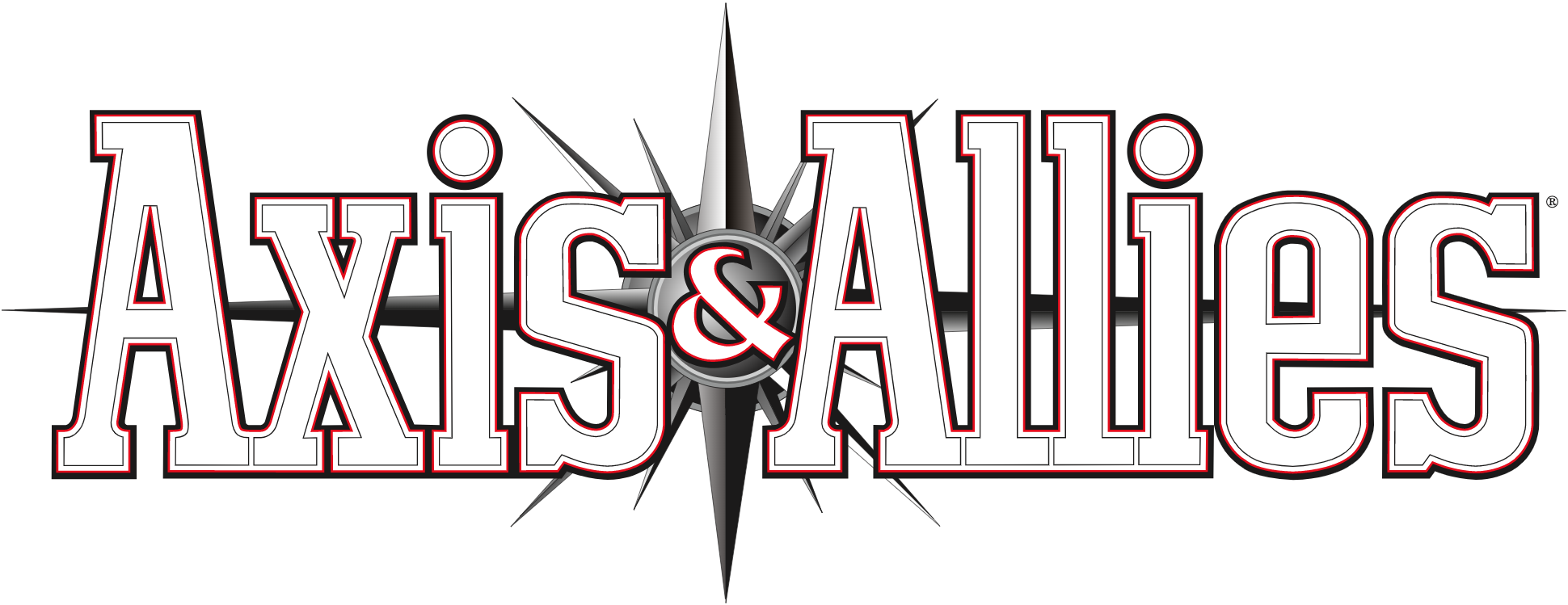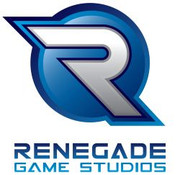This is the GI JOE Roleplaying Game Living FAQ. This page will be updated with new questions and rule clarifications as needed. This page will always have the most up to date FAQ available.
You can also download the FAQ here.
Living FAQ Version 1.06
Essence Points, Skills, and Health
How many Essence Points should I have at Level 1?
At Level 1, all player characters have 16 Essence Points total. Your Origin gives you 1 Essence Ability Increase (usually a choice between two options), and your Role gives you 3 more (2 from the base Role and 1 from your Focus). These four Essence Points are the only ones determined by your character creation choices and come with related Skill Rank options.
In addition to these four, all player characters also receive 12 Essence Points to assign however you choose. We recommend a “spread” of 4, 3, 3, 2 to assign to your Strength, Speed, Smarts, and Social, in any order, but you may assign them in any amounts. Remember that as you assign these Essence Points, you must choose Skill Ranks in the related Essence to round out your character!
How do I choose a Specialization for my Skill?
A character may take Specialization in any Skill they possess at the d2 level or higher by spending a Skill Rank, filling the bubble on one of the lines under the related Skill, and filling in the specific Specialization chosen. The Core Rulebook provides a list of suggested Specializations that come up most often in G.I. JOE gameplay, but you are not limited to just those! Feel free to discuss with the Game Master what Specialization you feel your character may have, given their background or experience in game as they level.
For example, the Core Rulebook lists sample Specializations for the Infiltration Skill as Burglary, Sleight of Hand, Shadowing, and Stealth, but perhaps your character is an actor. While you may have the Performance Skill under the Social Essence, taking a Specialization in Mimicry or Disguise under Infiltration makes a lot of sense for a character with acting skills! As long as your GM agrees, these types of choices are completely acceptable as unique Specializations.
How do I get additional Health?
Additional Health comes from the Conditioning Skill. Each time you put a Skill Rank in Conditioning, increase your Health by one point.
How do I know where to assign Skill Ranks?
Skill Ranks are assigned by using the number of Essence Score points in each Essence category: Strength, Speed, Smarts, and Social. The number of Skill Ranks assigned under each Essence should match the Essence Score, unless you have a specific Perk that allows you to change where you may assign your Skills.
When gaining Skills, the book states that any time you gain an Essence Point, you get a Skill Rank associated with that Essence. Does that include Origin and Role? For example, if I was building Scarlett as a Commando with the Spy Role Focus and an Intelligence Origin, would she get 1 Skill in Speed, 1 in Smarts and 2 in Social on top of the 4 Skill Rank increases listed
The Skill Ranks you choose for Origin and Role are from the ones listed in each Origin and Role, and you still only receive 1 Skill Rank per respective Essence increase.
From the above example, Scarlett would need to choose between Acrobatics, Infiltration, Deception, and
Streetwise for her Role increase, one from a Speed Skill and one from a Social Skill. From her Spy Focus she would choose an increase between Deception, Persuasion, Intimidation or Streetwise. From her Intelligence Origin, she would choose from Alertness, Culture, or Technology
Influences
Why are the Athlete's Background Bonds so... aggressive?
The Athlete Influence was mistakenly printed with an early version of the Checkered Past Background Bonds. Here are the correct Background Bonds for the Athlete Influence:
1 - My friendly nature turns rivals into friends and compatriots so we can work together against Cobra.
2 - I suffer from an old injury I got in sports that flares up at the worst times.
3 - I’m happiest when I’m sweaty, sore, and bone-tired from exertion.
4 - I left behind a lucrative athletic opportunity to join the Joes, and people still clamor for me to return to the sport.
5 - Testing myself against others through competition is the only way to prove myself and push myself to improve.
6 - I find myself working out in idle time, using body weight exercises or whatever’s handy.
7 - I’m not the athlete I once was and I refuse to admit it which often gets me into trouble.
8 - I’m the squad coach and I push others to do better than they think they can.
9 - I mistreated fans badly when I was at the height of my game and some are sure to remember what a jerk I was.
10 - Sport helped me out of a rough childhood, and now that I have the means, I do what I can to provide for others who were once in my position.
11 - I get angry when I’m not the star player on the team.
12 - I keep close ties with my old coach, who still mentors me.
Why isn’t Ninjitsu on the list of Martial Arts Specialties on table 5-8.1?
The list of Martial Arts Specialties in the table are provided as a set of examples to use in your character build if you don’t already have a clear vision of the character you want to make. These lists are only for flavor, and you may absolutely choose Ninjutsu, regardless of what's listed there! Just above the table in the G.I. JOE Roleplaying Game Core Ruleboook on Page 150 it says that “you are free to come up with a specialty not on this list in consultation with your GM.”
Insider wink: Ninjutsu may have intentionally been left off of this simple list to pave the way for more robust options in a new sourcebook, coming soon! Don’t let that stop you from taking this Influence now, though – remember that your character can add more Influences (albeit with Hangups)!
Origins
How does the Origin Essence Ability Increase and Bonus Skill Levels work? Do I get all of the Skills listed or just a selection?
Every time a player increases an Essence Score (Strength, Speed, Smarts, or Social), they will increase a Skill Rank tied to that Essence. In the case of the Essence Ability Increase that is given with your Origin choice, your Skill Rank is increased in one of the listed Skills for that Origin.
To clarify, you should not add all of the Skills listed. The list is only the selection of Skills from which you choose to take. Remember, the Skill Rank you increase must match the Essence that was raised.
QUICK TIP: You can always check to see if you have the correct number of Skill Ranks under each Essence Score by counting the bubbles filled in on you character sheet! Unless you have a specific Perk or other rare circumstance that affects your Skill selection, the number of bubbles will always match the Essence Score!
The Soldier Origin Benefit says "You are trained in all weapons, other than unique weapons," and the Infantry Role's Equipment Training and Qualification says "You are trained in all weapons." Does that mean if I play an Infantry character with the Soldier Origin, I don't get anything from my Origin Benefit?
Essence20 is designed to offer a few different options based on the same concepts in a way that doesn't create an over effective combination in gameplay. In this case however, the two character options are redundant when used together. We don't want to punish players for building Infantry characters with the Soldier Origin (that's half the Joes!), so we will be adding the following text to the Soldier Origin Benefit in future printings. "If another option grants you training in all weapons, such as the Infantry Role, you instead gain the Weapon Training General Perk as your Soldier Origin Benefit.”
Roles
The Commando “Be a Hero” perk says to reroll all Stealth or Deception skill dice. Does that mean Infiltration or Infiltration (Stealth) skill tests?
This text will be updated in errata to clarify. The “Be a Hero” perk will allow your Commando to reroll all Infiltration or Deception skill dice, not limited to a specialty.
On page 84 of the Core Rulebook, the Essence Increase section of Training says to increase Social and Smarts, but the chart for the Officer Role says Speed and Social. Which is correct?
The chart text will be updated in errata. Smarts and Social is the correct Essence increase.
Weapons
Certain Weapons in the chart have Traits like “Sniper” or “Martial Arts.” What do those mean?
When a Weapon has a Trait, it means it has additional effects or abilities inherent in the weapon that affect mechanics. Usually, a Trait will explain how a Weapon can be used, and a list of what each Trait does can be found in the G.I. JOE Roleplaying Game Core Ruleboook starting on Page 146.
Some Traits don't do anything on their own, but interact with other rules. For example, the Commando Role's Sniper Focus (G.I. JOE Roleplaying Game Core Rulebook Page 75) gains a variety of benefits when using weapons with the Sniper trait. Additionally, characters can specialize in Weapon Traits. If you were building a character like Low Light and you Specialized in Targeting (Sniper), then you gain the benefits for Specialization whenever you use a weapon with the Sniper trait. And yes, if you specialize in the Sniper trait and you choose an option like the Sniper Focus, you get all the benefits.
I want my character to have a specific Weapon that doesn’t appear on the chart in the Core Rulebook. What do I do?
Because there are so many stories in G.I. JOE to draw from, we want you to be able to make any sort of character with any types of weapons you choose. The Weapons section in the G.I. JOE Roleplaying Game Core Rulebook starting on page 140 has a nice array of template weapons that draw inspiration from familiar G.I. JOE stories, but we will have even more coming in future supplements which are already developed that this section sets up for. For now, you can use the Weapon types in the chart as a template to make whatever you need to suit your character vision.
For example, if you want to arm your Joe with The MacGuffin Device from the classic cartoon episode Once Upon A Joe, a weapon that "draws out the innermost nature of the user" to "project solid hallucinations", work with your GM to determine the Skill required to use it, the Effect and Alternate Effects of a successful attack, and the weapon's traits. You and your GM could decide it's all flavor and have it use Targeting, deal 1 Stun or 1 Blunt (↓ 1), and have the Computerized trait. Or you could go against the Weapons formula and have it use Perform, and give it a unique Trait that targets a creature's Willpower or Cleverness. We may include official stats for such a device in a future book, but you’ll have somewhere to start for your character now.
Many Ranged Weapons list two ranges, such as 30/90 ft. What does this mean?
The first number in this listing is the normal range for the weapon to hit. When attacking a target within the range of the first number, roll normally to attack.
The second number in this listing is the “long range” for the weapon to hit. It is possible for the projectile to hit within this range, but the roll must be made with a Snag, as it is more difficult of a shot due to the distance.
Note: If you are called upon to roll with a Snag due to multiple game effects, there is no “double Snag” penalty. Neither Snags nor Edges stack, and you only have the one instance on your roll.
What does “Computerized” mean as a Weapon Trait?
Any piece of Equipment, including Weapons, that have the Computerized Trait works just like other Traits as a descriptor for the Weapon that have other effects when outside factors affect it.
For example, a Weapon that is “Computerized'' may be used with Specialization by anyone who takes the Computerized Specialization, just like they would “Martial Arts.”
Additionally, there may be Effects that occur in-game that apply to Equipment that is Computerized. For example, if a Threat sets off an EMP, and your Computerized Weapon is in the blast area, it will be affected (and may not work anymore)!
There is a specific Weapon from G.I. JOE canon that I want to use, but it isn’t in the Core Rulebook! What should I do?
With decades of source material, it wasn’t feasible to include every Weapon or piece of Equipment in the Core Rulebook, but don’t worry! We have a ton planned for future books that will have new choices covered!
For now, use the Weapons Table as a guideline for the type of Weapon that you want your Joe to wield and what type of Damage it does. The shape and look of the Weapons listed don’t matter – the type of Damage and what Skill is necessary for its Attack is what counts! Work with your GM to use these templates to craft the Weapon you envision to make sure that it is neither over nor under powered, and you’ll be set for your next mission!
Some Weapons, including unarmed combat, deal Stun Damage. How does Stun Damage harm an enemy?
Successfully hitting a target with a Stun weapon means the target is denied their Move action for the listed number of turns (however much the Stun Damage is). If the listed number of rounds equals or exceeds the number of Health the target has left, they fall unconscious, Defeated. More information on Stun Damage and other types of Damage that incorporate Stun can be found in the G.I. JOE Roleplaying Game Core Rulebook on Page 147.
Armor
If a Joe is qualified in Light and Medium armor, do we combine the bonuses or just choose one?
You should choose one that your Joe qualifies for -- Light is listed along with Medium because it is the pre-qualification for the stronger armor, so your Joe will always be qualified for both (or anything less than whatever you are currently qualified for).
So, if you take a Perk that allows you to take Heavy armor, your Joe can instead wear Medium or Light, if need be. You'll almost always want to take the best armor you can, unless you have some other Perk or Power that says that armor can't be used with it.
Combat
What dice do I roll when making an Attack?
Depending on the Weapon that you use for an attack, there will be a specified Skill that is listed for that Weapon. Roll the die type listed as your Skill Rank on your character sheet (your Skill Die) and add it to your d20 roll to get a combined total for your Attack. Remember that your punches, kicks, and other unarmed combat also count as weapons, and you may use Might or Finesse as the Skills for those rolls.
If the Weapon you are using relates to a Specialization that you have in your Skills, then you roll the die type listed as your Skill Rank and every other die type “below” it. These are all considered your Skill Dice for the roll. For example, if you have a d8 in Targeting, but you have a Specialization in Archery and want to shoot with a bow, you roll the d8, d6, d4, and d2. Take the highest number from these dice and add it to your d20 to get a combined total for your Attack.
How do I “crit” on my rolls?
Any time you make a successful Skill Test, whether in combat or just performing a regular skill, if any of your Skill Dice (except for the d2) show the highest number for that die type, the roll is a Critical Success. The d20 does not count as a Skill Die, but rolling a 20 will often mean the Skill Test is successful, which is the most important part!
A Critical Success in an Attack roll will most often result in doubling the Attack’s effect, but some weapons have alternate Critical Effects that may be chosen instead.
The Infantry's Akimbo fighting style says "If you have a pistol or a submachine gun in each hand, you receive ↑1 on your offhand attack." How do offhand attacks work?
In future printings, the Combat chapter will included the following rules :
"Attacking with an off-hand weapon, like a parrying dagger in your off-hand or going in with two pistols blazing, is a type of Multi-Weapon Attack. Without training to wield two weapons accurately, your primary attack suffers a ↓1, and your off-hand attack suffers a ↓2. You make one off-hand attack when taking the Attack action."
So an Infantry with the Akimbo fighting style would suffer a ↓1 on both attacks instead of ↓1 on one attack and ↓2 on the other.
In the Combat chapter, on Resetting Your Initiative, it says "combatants can choose to try and reset their place in the Initiative Order as a Standard action. Instead of taking their turn, they roll a new Initiative Skill Test." Do you take a Standard action to reset your initiative or reset your initiative instead of taking your turn?
It's actually neither. In future printings the text will be updated to read that resetting your initiative is a Move action, like in other Essence20 Games.
Aiming for a Ranged Attack in the Power Rangers Roleplaying Game (page 166) says that a character may Aim in a turn up to three times with Free Actions, yet in the Essence20 core rulebook for the G.I. JOE Roleplaying Game (page 192), it doesn't list a limit per turn at all. Which is the correct method to Aim with Free Actions in Essence20 Roleplaying Games?
You can spend a Free action to Aim in Combat. Aiming provides ↑1 on a ranged attack. You can spend up to 3 Free actions on your turn Aiming, applying each benefit to a different ranged attack.
Threats
I don’t see certain Skills listed on the Threats. Does that mean the Threat has to roll with a Snag?
Yes! Just like player characters, Threats have Skill Ranks. If a Skill is not listed in their statblock, they may attempt the Skill Test, but they (or rather, the GM rolling for them) must make the Skill Test at a Snag, taking the lower of the 2d20s as their score.
Conditions
How do characters remove the Unconscious Condition?
Another character can spend a Standard action while in contact with the Unconscious character to rouse them, removing the condition at the beginning of the following combat round.
Customer Service
How can I download a copy of the PDF?
Purchase the PDF by adding it to your cart and checking out as usual. Follow the steps below to download the copy:
- Log into your account on the website or access it through the "check your order" link in the confirmation email
- Click on the order number and an itemized list will appear.
- Click the small blue arrow next to the PDF on the list and then follow the onscreen directions to download your PDF!
Can I use regular role playing game dice?
Yes, you can use regular dice! The game can be played with any dice set featuring the roleplaying staples of d4, d6, d8, d10, d12, and d20. For the d2, a coin can be flipped or you can just call even or odd on any other die.
The G.I. JOE Playing Game Dice use a star symbol to make it easier to see Critical Successes. If using regular dice, replace the highest number on each die with Critical Successes.
There are also a number of online or app-based die-rolling tools if you don't have access to existing dice, so don't let a lack of G.I. JOE Roleplaying Game Dice keep you from enjoying the game!
When will all the additional G.I. JOE Roleplaying Game accessories be available?
We have a full line-up of releases planned. Be sure to subscribe to our newsletters and keep an eye on Renegade Con for announcements.
For the most up-to-date release dates, check out our release dates page! Shipping times have been unpredictable this year, so we update this page as quickly as possible to reflect any changes that occur.
Do I need to purchase the game separately on Roll20 in order to play it on that platform?
The game on Roll20 is a separate product from the hardcover or PDF versions of the game. To create a game on Roll20 using all of the information from the Core Rulebook, you will need to purchase the Roll20 version of the game. To use features such as Dynamic Lighting on the G.I. JOE maps provided in the Roll20 versions, you will need to have a subscription to Roll20.
Do all the players in a Roll20 game need to purchase the game and a subscription to Roll20?
No! As long as the Game Creator has a subscription and has purchased the Roll20 version of the game, any players and/or guest GMs will have access to those features as well! You’ll be able to share perks with your whole table. Read more about it on the Roll20 Help Center.
How do I find other people to play with?
Online social communities are a great place to start looking for other players!
Check out our local store locator to see if there is a store near you carrying Renegade Games. Reach out to them for advice on local groups and to meet other players!
How many people can play?
The game is designed to be played by 2 or more players.
Can I play this game with my kids?
Sure! It is rated for kids and adults ages 13 and up on their own. It is possible for younger players to play with adult help. Cooperative games like Roleplaying are perfect for this type of team effort!
How long does it take to play?
That’s really up to you. A typical session can be anywhere from two to four hours. But it is possible to play any amount of time. Your adventures can be short and resolved in one or two sessions or you can play a long ongoing campaign that lasts for years!
Is there a How to Play video to help get me started?
Yes! We have many videos available for you, from Actual Plays to Character Creation. Follow this link for a variety of options.
Where do I find downloadable character sheets?
Check out all the free bonus content here.
Will the G.I. JOE Roleplaying Game be in my native language?
Currently, the G.I. JOE Roleplaying Game is only available in English but we work with partners worldwide to translate many of our projects into other languages. Stay tuned for any future announcements by signing up for our newsletter here.
What if I still have questions?
We know learning a whole new game system can be a daunting task so we encourage you to join us on Discord or on our Facebook G.I. JOE Groups listed here.
If you have questions about an order or other questions are left unanswered, please reach out through our Customer Service Form here.













